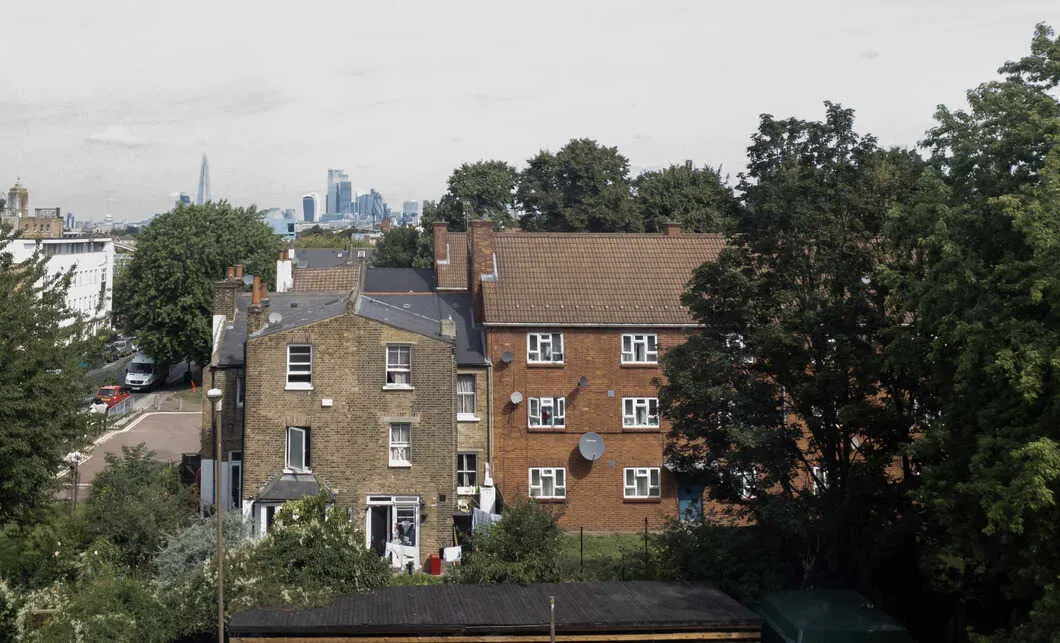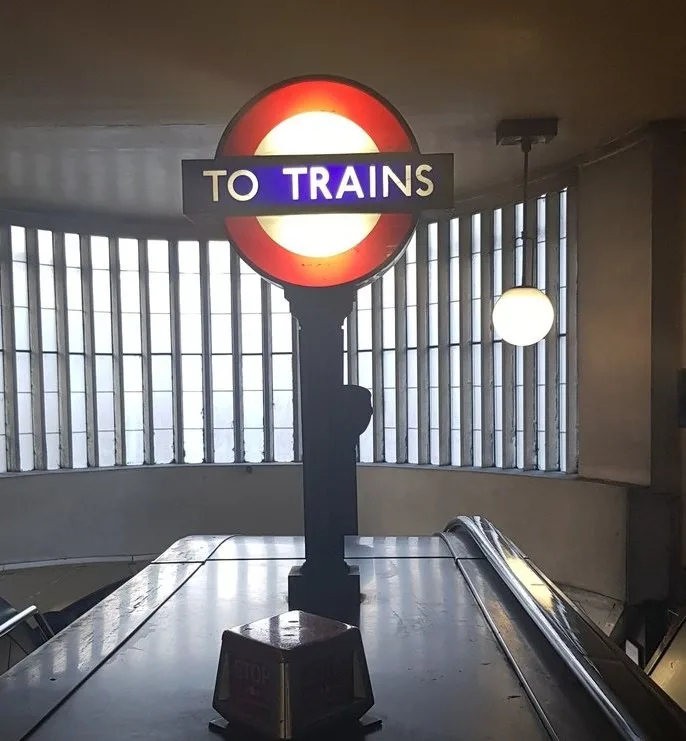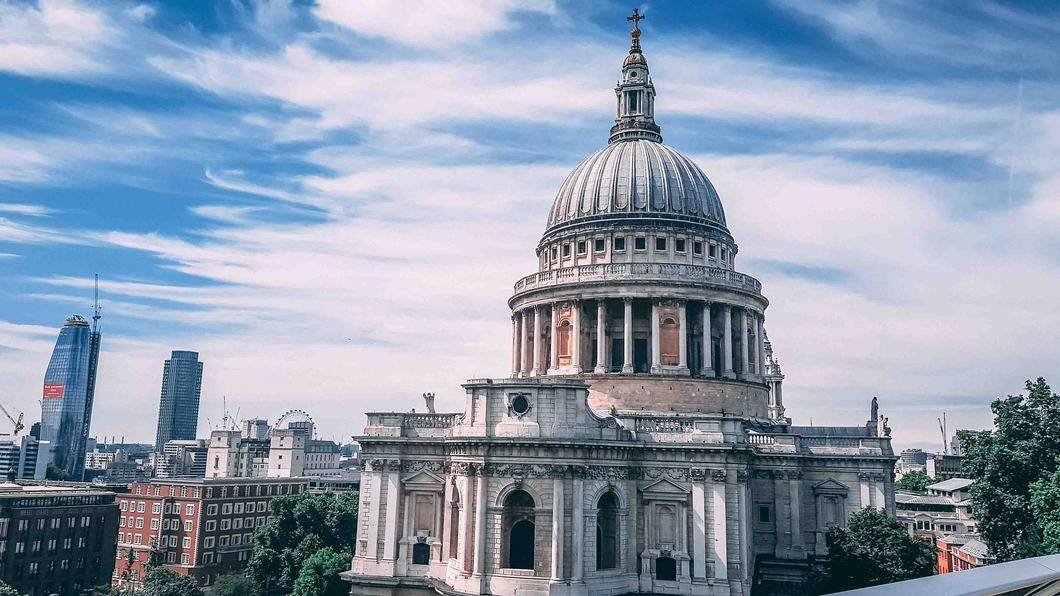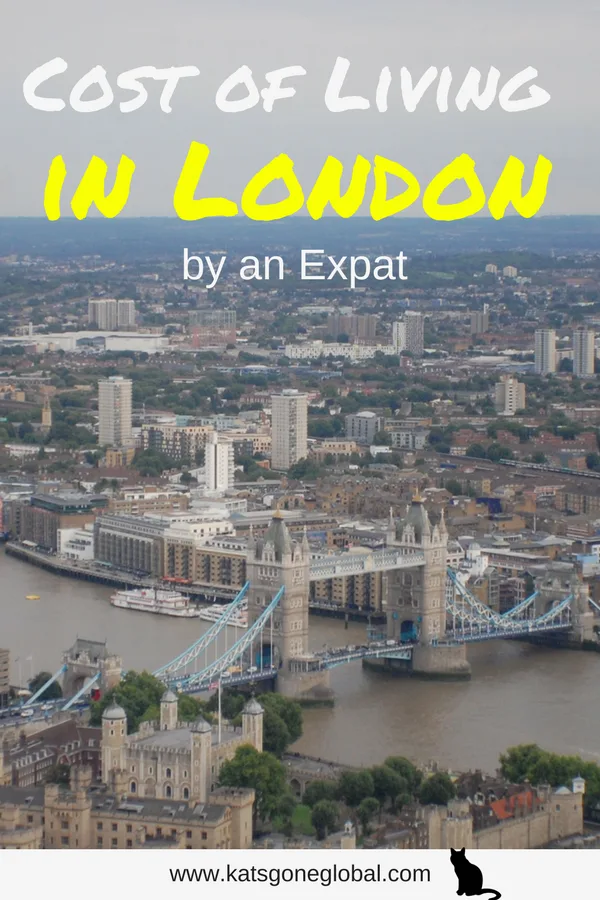Thought about moving to London? Then you’ve probably been trying to understand how much it will cost to live here and no doubt you would have stumbled across articles about how expensive the cost of living is in London.
I will breakdown what my monthly expenses are living in London and show you examples of the past few years. Plus anything else you should consider when budgeting for when you move.
Even though the city can be expensive there are savings to be had as well! Always negotiate where you can or try some of the free activities London has to offer for entertainment.
Disclaimer: Hi! this post may contain affiliate links which will take you to online retailers that sell products and services. If you click on one and buy something, I may earn a commission, see my Affiliate Disclosure for more details.
Cost of Housing in London

A high percentage of your salary in London will go on renting or paying a mortgage for a property. To give you an idea of the percentage of salary you might be putting towards rent:
- Hamptons survey in 2020 said that the average 21-29 year old spent 34% of their pre-tax income on renting a room.
- Trust for London has said that the average one-bedroom property is equivalent to 46.5% of gross-median pay.
In 2021 there may be some savings on rent as rental prices have been dropping, especially in central London. SpareRoom has said that renting a room is 8% lower in Q4 of 2020 compared to 2019.
According to Zoopla, in October 2020, the average cost of rent in London fell by 6.9 per cent.
When starting your property search, I recommend using a tool like the London Mayor website heat map as it will give you the median prices for the area.
Renting a Whole Property
The average rental price in London in 2021 for new tenancies, according to Homelet.co.uk, is £1,572 a month.
As the flat I live in is owned by my boyfriend the cost of living here is different. If it was on the market as a rental it would rent out between £1,600 to £1,700 for a two-bedroom flat in zone 3.
When looking for a flat to rent I would start with Zoopla or Rightmove, these sites are where estate agencies will list properties.
Psst. Don’t forget to read my guide on How to Find a Flat in London where I cover everything you need to know.
Renting A Room
It’s very common in London to live in shared accommodation where you rent a room within a flat or house. According to the Hamptons survey the average Londoner rented a room for £728 which is up 2.8% from 2019.
Renting rooms will generally be excluding utilities so this cost is something you should check with your potential roommates.
When I was renting from 2013 to 2016 I paid from £650 to £740 for a double room in zone 2 living with 3 other people and these prices are not including utilities.
Spareroom will help provide prices on rooms, especially those looking to keep costs down and live with other people. You can check this document on the average of room prices across London.
They have a handy tool for helping you find where to live, try it out. If you are a couple expect to pay more for a room than a single person but split between the two of you it will be cheaper.
Psst. Don’t forget to read my guide on How to Find a Flat in London where I cover everything you need to know.
Renter’s Insurance
Renter’s insurance is formally referred to as tenant’s insurance and this is designed for people who are renting properties.
There are two types of insurances:
- Tenants Liability Insurance insures you in the event of any accidental damage to items that belong to or are provided by your landlord in the property. As it is common to have furnished accommodation in the UK, this can protect you from accidentally damaged items and deposit deductions.
- Tenants Contents Insurance is to protect your contents if there are any issues like fire, theft, accidental damage or other insured risks.
You can opt to have both insurances within your policy.
Your landlord will not insure your personal possessions in their property, they may have building insurance to cover the property but if there was a fire it would be your responsibility for your contents.
Prices for insurance can start as little as £10 a month so it is an affordable cost for peace of mind.
Do I need Tenants Liability or Tenants Contents Insurance?
No, they are not mandatory requirements to rent a property in the UK. It depends on how much risk you want to take on whether you get the insurance.
Utilities in London
The common utilities and household bill for London include council tax, electricity, gas, water, internet and TV licnese. I will breakdown what each one is and how much to expect.
For the utilities you are allowed to choose your own supplier you can use comparison tools like Money Super Market, Go Compareor U-Switch to find the best supplier for you.
Council Tax
Council tax is an annual fee that is paid to the local council to fund local services like rubbish collection, police and fire services.
You can choose whether you pay over 10 or 12 monthly instalments or annually. When you receive your bill contact your local council to set-up the payment plan. I currently pay mine in 12 monthly instalments.
The amount of council tax you pay will vary on where you live and how much the property costs. There are also reductions available, for example:
- Live alone (25% discount)
- Student
- Low income
You can read more about exemptions and reduction here.
Here’s a summary of my monthly payments:
2018 Costs | 2019 Costs | 2020 Costs | 2021 Costs |
£130.30 | £137.00 | £141.41 | £142.00 |
Electric and Gas
For electric and gas suppliers you can choose your own supplier. These are the big suppliers for electricity and gas in London E. ON, British Gas, EDF Energy, Npower, Scottish Power and SSE.
Although there are more than 20 suppliers providing electricity and gas. Using websites like Money Super Market, Go Compare or U-Switch will help you narrow which provider you should choose.
There are two types of energy tariffs that will be offered:
- Fixed-rate tariffs mean you pay for each unit of electricity or gas you use.
- Variable-rate tariffs mean you will have a varied rate in the price which can go up or down at any time.
All the other tariffs will be a variation of the two mentioned above.
Many providers will offer discounts if you choose them as the electric and gas supplier. It’s important when choosing that you check the deals at the time.
Here are my electricity and gas costs over the years:
2018 Costs | 2019 Costs | 2020 Costs | 2021 Costs | |
Electricity | £ 30.74 | £38.06 | £38.06 | £85.61 |
Gas | £30.38 | £36.21 | £36.21 |
In 2021 I’ve changed to a dual supplier for my energy bills. I’m now with Octopus Energy on their Supergreen Octopus which is 100% renewable electricity & the gas is fully carbon offset.
The cost of energy has gone up due to the fact there are three of us now working from home and I paid a few extra pounds to support green energy.
Water
Thames Water is the main supplier for water and sewerage services to London and a large proportion of central Southern England. Unfortunately, there is no shopping around for this!
You can find out more details about how your bill will work with Thames water here.
There are options for paying your water bill, it can be from weekly to annual payments. I personally pay monthly and here are water costs over the years:
2018 Costs | 2019 Costs | 2020 Costs | 2021 Costs |
£31.21 | £32.70 | £33.46 | £33.46 |
Internet
Broadband is a fixed price in the monthly bills so it’s easy to budget for. Simply choose the speed that you need for your household and a provider that is offered in your area. As there is competition in this space you will be able to bargain for the best price.
You can also get combination packages like tv and broadband, mobile and broadband or all three combined.
I pay quite high prices for my internet as I wanted a fast fibre connection. It actually ended up being cheaper in recent years to get tv and broadband bundles. I highly recommend negotiating as I saved £21 a month on my latest renewal.
My internet breakdown over the years
2018 Costs | 2019 Costs | 2020 Costs | 2021 Costs |
£41.23 – Fibre only | £49 – Fibre only | £49 – Fibre with TV | £53 – Fibre with TV |
TV License (optional)
TV license is required if you plan on watching free view TV or apps like the BBC iplayer. You can check if you need one on their website.
I do pay for a TV license as we watch free view TV. Over the cost of a year it’s only a couple of pounds a month. You can pay for this either monthly or yearly.
Here is how much I paid in TV license costs over the years:
2018 Costs | 2019 Costs | 2020 Costs | 2021 Costs |
£150.50 (yearly) | £150.50 (yearly) | £157.50 (yearly) | £157.50 (yearly) |
Monthly Price for Utilities in London
The total cost for the household is £327.20 for 2021 which covers Council Tax, electricity, gas, water, internet and TV license.
2018 Costs | 2019 Costs | 2020 Costs | 2021 Costs |
£276.40 | £305.51 | £311.27 | £327.20 |
Individual Monthly Costs
As an individual you will have varying costs in your budget. This will include mobile phone, groceries, personal care, healthcare and any other line item you consider a monthly cost.
Mobile Phone
Mobile phone costs will vary based on what type of contract you plan on getting or have. I personally buy my phones out right now so I have a sim only contract and went for a more data driven package.
For £10 I get 5,000 minutes and 10GB of data.
Since 2019 the cost of my sim only contract hasn’t changed and has been a predicable cost.
2018 Costs | 2019 Costs | 2020 Costs | 2021 Costs |
£50 (phone & sim contract) | £10 (SIM Only) | £10 (SIM Only) | £10 (SIM Only) |
What’s the Monthly Transport Cost in London

The most popular way to get around London is using public transport by either using an Oyster Card or contactless. Having a travel card will allow you to travel freely using multiple modes of transport, bus, tube and national rail.
Depending on how you like to budget you can either opt for contactless or pay for an oyster card for a set period, weekly, monthly or yearly.
Contactless will charge you per journey until you reach the daily cap and then automatically apply the weekly cap when you hit this spend.
A popular choice is to get a weekly or monthly travel card. This does really help with budgeting as you can just top up your oyster on payday and not have to worry about travel until your next pay.
| Monthly Travelcards 2021 | |
| Zones 1–2 | £142.10 |
| Zones 1–3 | £167.10 |
| Zones 1–4 | £204.30 |
| Zones 1–5 | £243.10 |
| Zones 1–6 | £260.00 |
| Zones 1–7 | £283.10 |
| Zones 1–8 | £334.10 |
| Zones 1–9 | £370.60 |
Just to note: Weekly travel cards will charge you more admin fees. The longer you buy a travel card the cheaper it is. You can also get a yearly travel card which can save you £300 per year and comes with an Annual Gold Card. The Gold Card gives you 1/3 off certain National Rail Routes.
Instead of buying a travel card I opt for paying as you go. I used to work from home two days a week and don’t always use transport on the weekend. I used to roughly spend about £120 to 150 on travel around London.
However now I work full time from home and now spend nothing on travel. When London starts to open up I see this cost increasing.
Tip: Considering buying a Railcard as you can save a 1/3 off rail fares. This is great if you plan on weekend trips around the UK, heading to the airport and much more. Make sure you read the terms and conditions before purchasing.
Owning a Car
Having a car in London you need to consider paying for the following:
- road tax
- congestion charges
- car insurance
- parking permits
- MOTs – this stands for the Ministry of Transport and the purpose of this is to check the safety, roadworthiness, and exhaust emissions of the vehicles on UK roads.
- fuel
When we had a Ford KA (small two-door hatchback) and paid about £150 for road tax, insurance around £350 and an MOT a year is around £60.
Alternatively, if you only require a car every so often there are plenty of car rental companies across London. You could consider hiring Zipcar. Zipcar is an American car-sharing company and a subsidiary of Avis Budget Group. Zipcar provides automobile reservations to its members, billable by the minute, hour or day; members may have to pay a monthly or annual membership fee in addition to car reservations charges.
Psst… If you are thinking about getting a car in London here are things to consider.
How Much Do Groceries Cost?
Grocery shopping will vary depending on your tastes, you can be thrifty or highend shopping at organic independents. Shopping at stores like Lidl, Aldi and Iceland will be the cheapest places to buy groceries from. Mid-range stores are Tesco and Sainsbury. The high-end stores are Marks & Spencer and Waitrose.
I generally shop at Tesco’s, Sainsbury and Good Club for my groceries but I have been trying to swap to more local suppliers when I can.
My weekly food shops have increased due to being home for a year. I tend to spend £100 a week on food shops now as we don’t go out.
The food covers 3 people eating vegetarian with household products (i.e. cleaning products and toilet paper). All my meals included both a lunch and dinner portion which is 14 portions of food a week.
For monthly budgeting, I would start at £200 a month for a single person and £400 for a couple. This would be shopping at a midrange supermarket covering 2 meals a day and household products.
Personal Care
This cost is purely dependent on what your routine is and how much you want to spend. I would add up your current personal care costs and convert this into pounds so you can see roughly how much this will cost you.
Overall I spend £44.32 per month on general personal care items.
The biggest cost comes in when we start talking about my hair. Since I switched to having pink hair this has come with a lot of additional costs and I could easily spend £200 a month on this. Yes I know it is a crazy amount to spend but I do really love my hair and I can afford it.
Healthcare (Prescriptions, Dentist, etc.)
Even though we pay for the NHS through our taxes there can be some costs associated with healthcare. For example, going to the dentist will have an associated cost for a check-up, teeth clean and other work you may need. If this something you do regularly (which you should) then it is something to factor into your budget.
Make sure you register with an NHS dentist and not a private dentist as you won’t get the NHS caps otherwise.
I generally try to go to the dentist every 6 – 12 months for a clean and once a year for a check-up. Teeth cleaning isn’t subsidised so this cost in my experience is from £60 to £100 depending on the clean you opt for.
For a check-up with an NHS dentist, I pay £23.80. You can see what each NHS dentist band costs here.
If you have any health conditions, wear glasses or anything else in this bracket then I would add this to your budget.
As I have migraines I have a set of medication I pay for every 2 months. Prescription costs are capped as well, I currently pay £9.15 for each item. Contraception is free in the UK so there will be no cost associated with this.
As a minimum, I would budget £100 for dentist visits a year and then add on any prescriptions, eye care or other items you need.
Entertainment
Entertainment is where all the spare cash can go! Most people I surveyed in 2019 spent between £60 to £100 a week on entertainment (eating out, activities, events etc.). There were a few that were savvy and spent between £40 to £60.
For me, it really depends on the week and what I am doing. I generally allow myself a £200 to £250 spending budget a week depending on what I am doing. I could save money in this area but I do pay for a lot of items that I need to run this website and give you all the information you need when out and about in London.
How Much Does A Meal Cost In London?

Meals can range in price depending on how much you like to eat or drink and whether it is a cheap eats place or Micheline star restaurant in Mayfair. Eating out tends to be where the money goes the fastest.
Here is a rough guide to what to expect:
- Brunch will be around £15 to £20 including coffee.
- Bottomless Brunch will be around £35 to £50.
- Lunch will be around £10 to £20 at a restaurant or Café.
- Dinner can be from £15 to £50.
If you are just picking up a quick bit during your lunch break at work then you can get a cheap Tesco meal deal for £3 or something a bit fancier like Pilpel (falafel) or Barburrito will be around £6.
How Much Does Alcohol Cost In London?

Just like meals, alcohol will range depending on where you decide to go out. To make a night out cheaper make sure you make the most of the happy hours or drink beforehand.
Alternatively, you can find some BYO (bring your own booze) restaurants as well like Tayyab’s but they aren’t as common in London.
Here is a rough guide to what to expect:
- A bottle of average wine in a restaurant will be between £12 to £25.
- A beer in a restaurant will be between £4.00 and £6.00 for a pint. Craft beer will be more expensive than your general lager. If you really love craft beer make sure you check out the Bermondsey Beer Mile.
- Cocktails will be around £8 – £18 depending on where you head out to. As mentioned above bars in London will offer happy hour for example you can get 2 for1 at Be at One for £8-9 or All Bar One half-price cocktails for £4.50.
- Our favourite store wine is a Toro Loco from Aldi for £3.89. Otherwise, around £6 to £8 will get you a good wine in Sainsbury and Tesco. Places like Marks & Spencer will cost upwards of £8.
- Craft Beer at a grocery store is around £1.50 to £3 per bottle or can.
Drinking alcohol in parks and on the street is allowed in London. When the sun comes out or the temperature goes up you will see Londoners flocking to the park with picnics and drinks, it’s truly the way to experience London like a local. It’s a great way of having a cheap day out with friends or family.
Cost For Activities In London

London has a great range of free and paid activities which is perfect as you will always have something available to do no matter what your budget is. Here is a rough guide to what to expect:
- Cinema tickets – £10 to £20 per person. The cinema is not a place I visit very often and tend to stick to Netflix with some wine at home. If you are a movie lover you can get monthly passes for £17.90 making it cheaper to see movies.
- Theatre tickets – £20 to £100 per person. There are some good deals around for Theatre tickets especially if you are not phased where you sit. I have previously scored tickets for £17 to see Wicked and Charlie and the Chocolate Factory. If you are happy to stand for 3 hours you can get £5 tickets to the Globe.
- Museums – mostly free! well at least all my favourite museums are! Here are 9 museums you must visit.
- Sight Seeing – Free to £30 per person plus travel. For example, Sky Gardens is free (find out the local tips with this video), whereas the London Eye would be from £23. Exploring Windsor Castle would require you to buy train and attraction tickets making the day more like £40 to £50 without food included.
Find out all the tips on how to book London attractions and how to save money with this article.
Other Costs
Don’t forget to add any additional costs you might have like enjoying a good cup of coffee, a monthly Netflix subscription or clothing.
Summary of London Monthly Living Expenses
To summarise the costs, the core household bills with groceries for 3 people comes to £727.20 and our estimated rent being £1,600 for a 2 bedroom flat then the cost would be £2327.20 a month.
I spend about £117.55 a month on things like personal care, healthcare and mobile phone.
A grand total of £893.28 as an individual living in a shared flat with 2 other people.
As I am no longer travelling to work that does save me £150 a month and my going out expenses are 0 at the moment. This will go up when more things open up in 2021.
Here Are Two Hypothetical Examples Of Potential Cost For London
Renting a room in a flat with 2 other people:
Room Rent* | £728 |
Core Bills | £109 |
Groceries | £200 |
Mobile | £10 |
Personal Care | £20 |
Healthcare* | £8 |
Transport* | £142 |
Total | £1,217 |
Renting a property as a couple:
Rent | £1,572 |
Core Bills | £327 |
Groceries | £400 |
Mobile | £20 |
Personal Care | £80 |
Healthcare | £17 |
Transport | £284 |
Total | £2,700 |
Per person | £1,350 |
All costs are based on what I spend or the averages I have included in this article. It’s just to help guide you on what to think about. *Property rent is based on average spend, healthcare is based on you going to the dentist once a year and transport is based on zone 1-2 monthly travel card.
More Living in the UK Articles
- Exchanging a Foreign Licence for a UK Drivers Licence
- A Helpful Guide on How to Find a Flat in London
- How to Build a Credit Score as a New UK Resident
- Essentials Items You Need for a New Apartment or Home

Kat
Hi, I'm Kat, an Australian that moved to London in 2013 to start a new adventure. What a roller-coaster that was! I love helping others move to the UK and people explore the world! I’d be honoured if you’d say, “Thanks!” with a £3 coffee on Ko-fi.



saba
Thursday 10th of September 2020
please guide me in whole how much living expense has to bear a student as a whole in a year ?
Rick
Wednesday 2nd of September 2020
So...How does the real person live there? Those that only make working mans wages? Say 12-15 dollars an hour perhaps and the govm't take 30% of that. And health ins another 10% or so??
Kat
Wednesday 2nd of September 2020
I am a real person and this is my cost of living that I have been breaking down, plus those who I surveyed in 2019. I've had a range of salaries in London and made it work, including sharing a room with a friend to save on money when I was struggling and so on.
At the end of the day, it depends on what you want as a lifestyle. If you want to live in London and you earn minimum wage, it will be tough but people do make it work because they want to live here. It is one of the most expensive cities in the world so if your goal is to save money or have a wider spending range then another UK city might work better. Then visit London when you can.
Sten
Sunday 10th of May 2020
Thank you for sharing such detailed information. They seem realistic and actually doable (after hearing tons of horror stories on how London is exceedingly expensive). I'll be subscribing to your blog!
Kat
Sunday 10th of May 2020
It all depends on your wage and where you want to live but it is doable. Finding a house is probably the most stressful part about the initial move to London, once you get over that it's generally smooth sailing from there.
Lisa
Sunday 8th of March 2020
Thank you for posting this, I found it very helpful